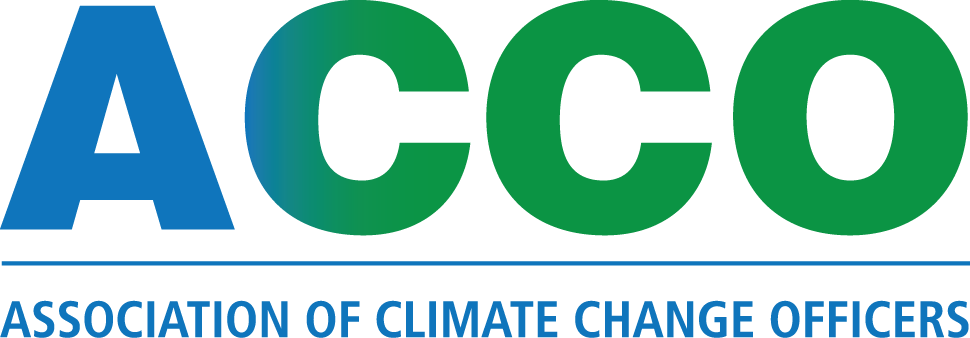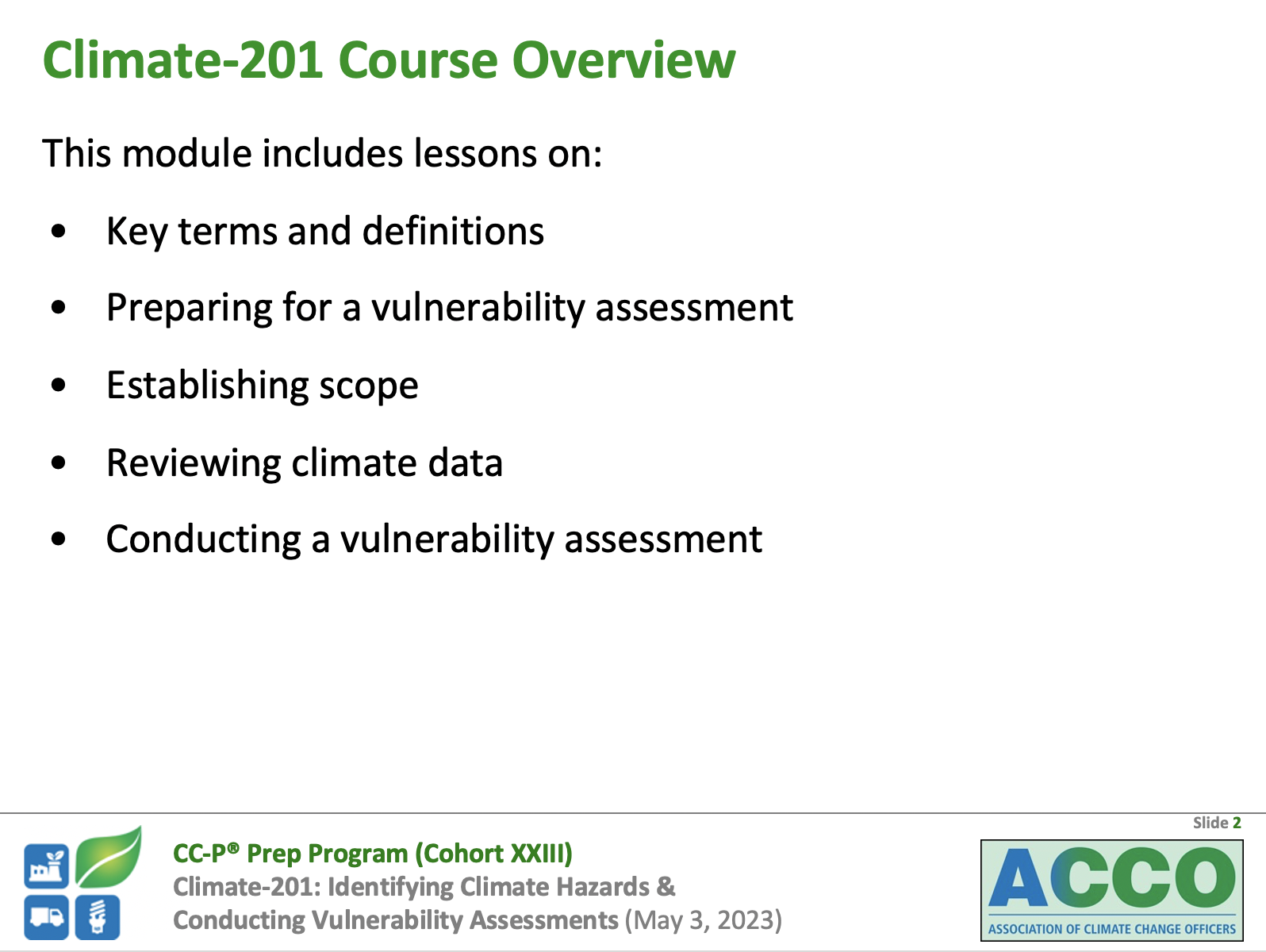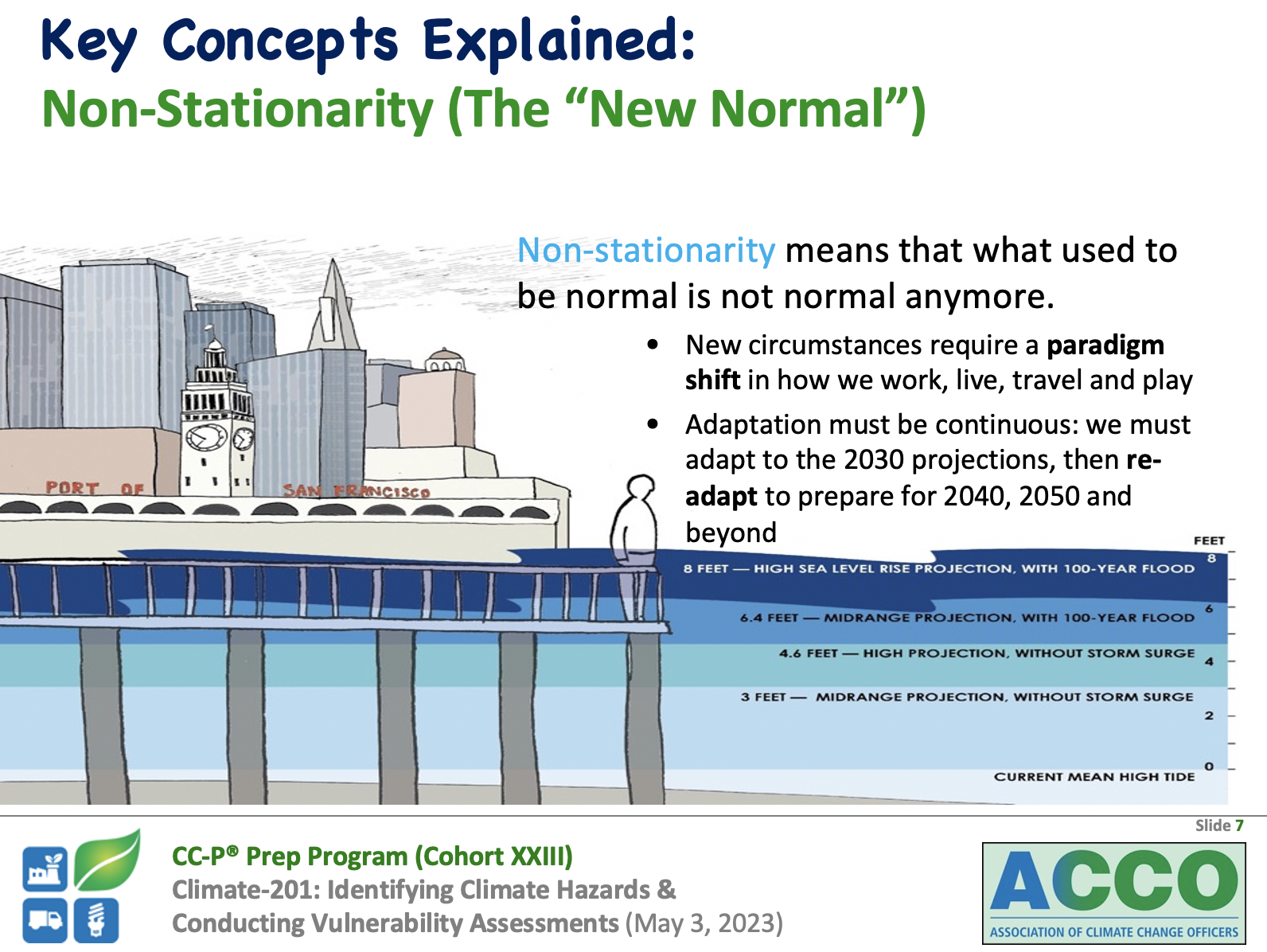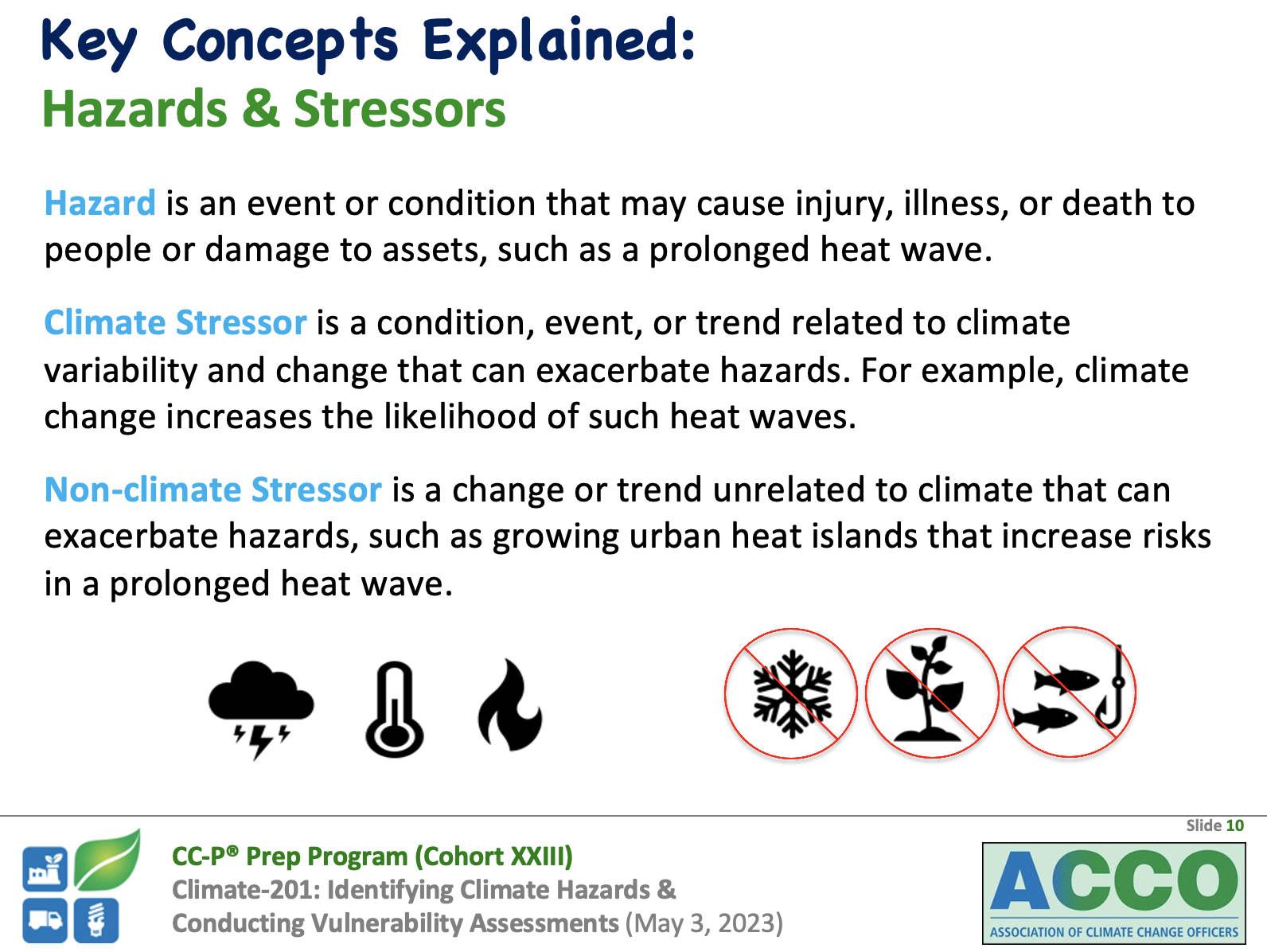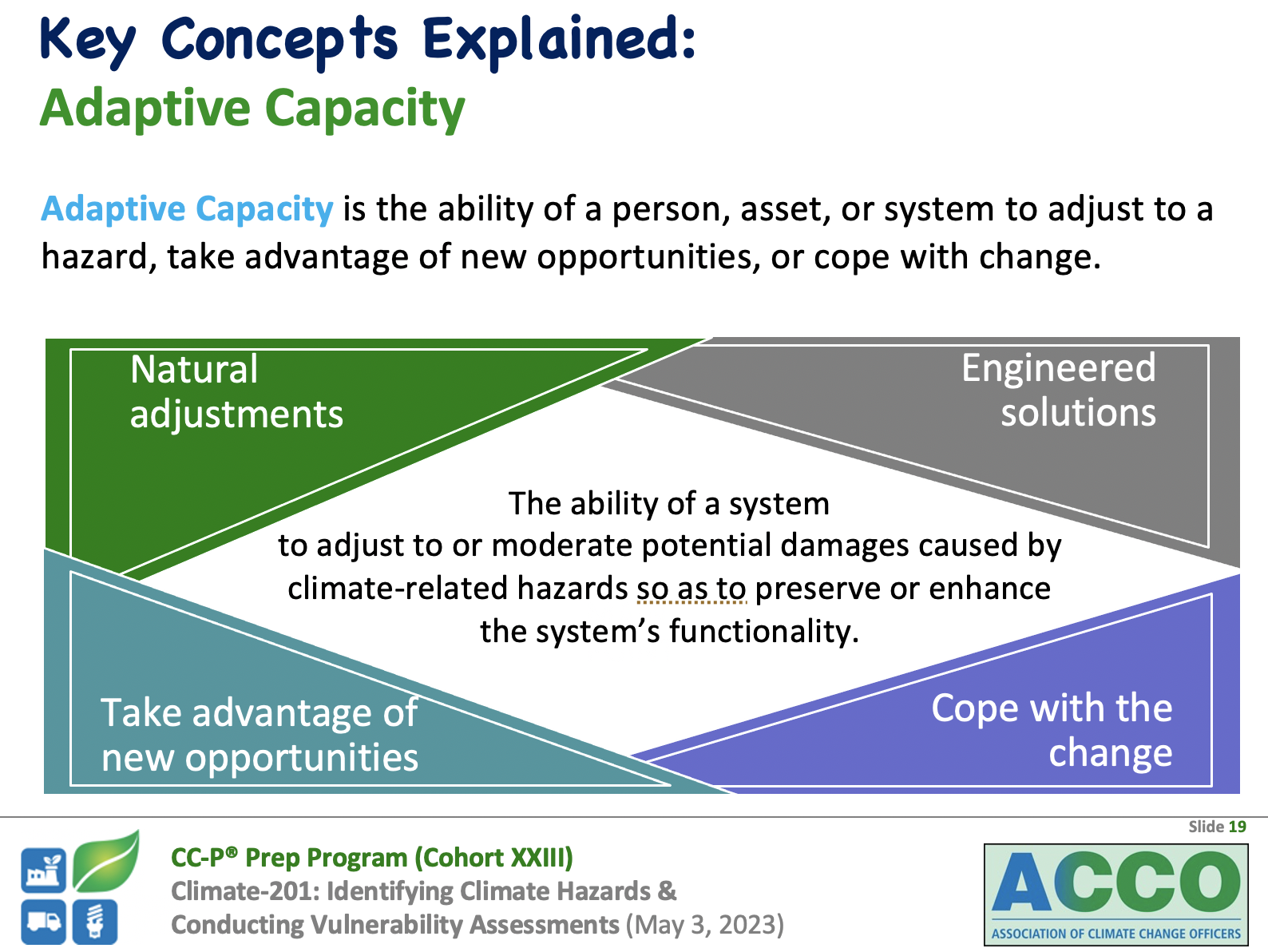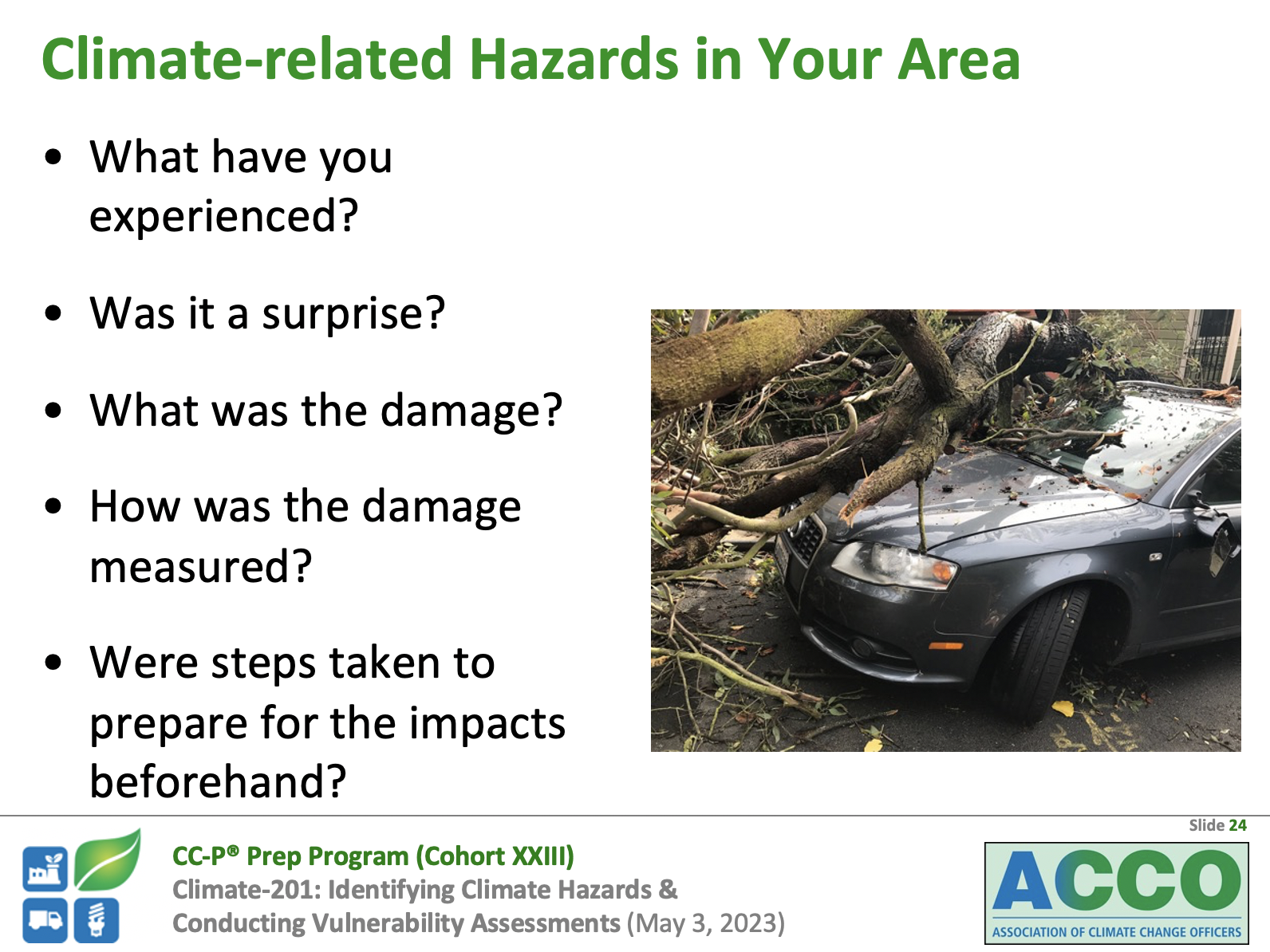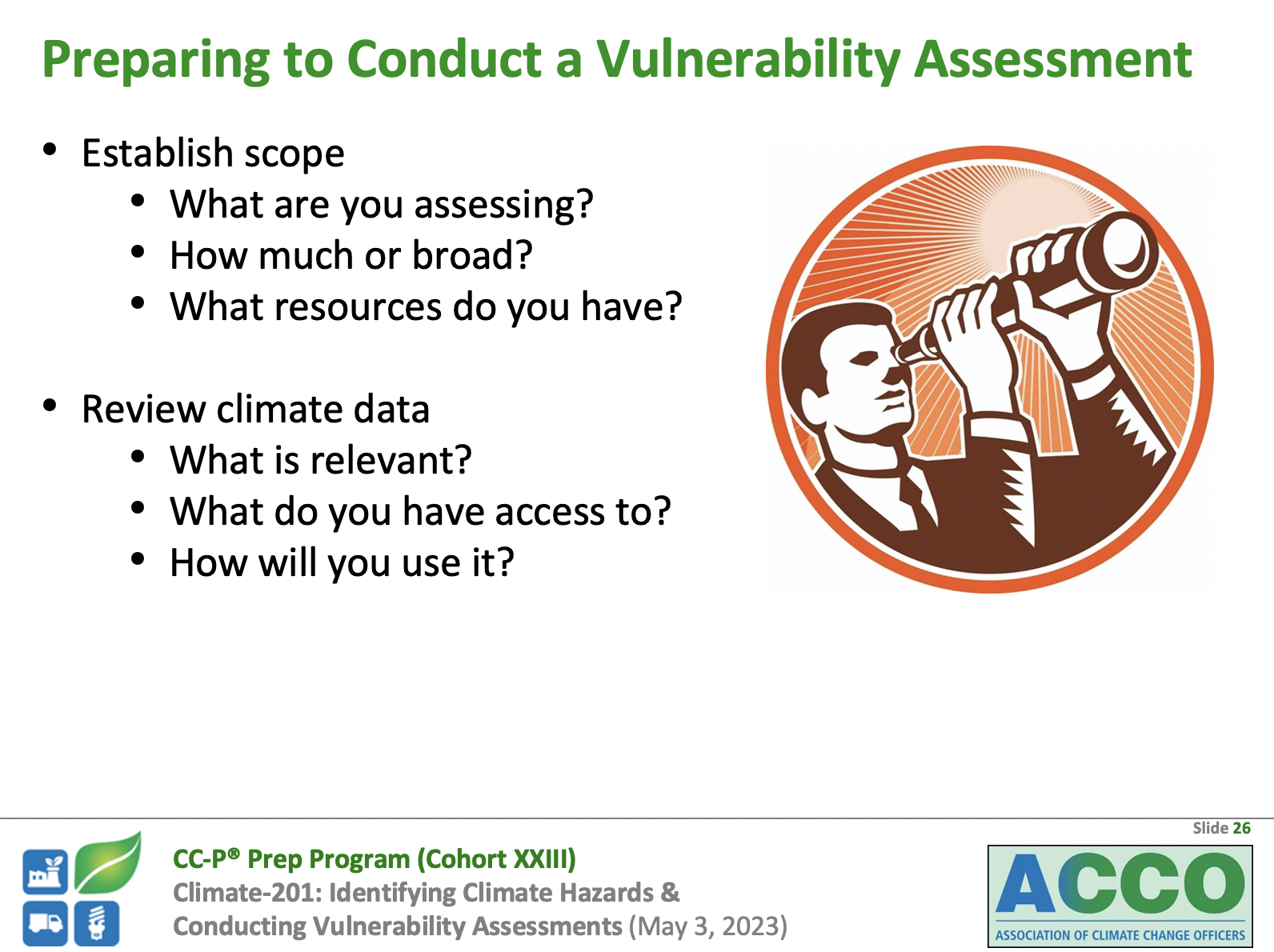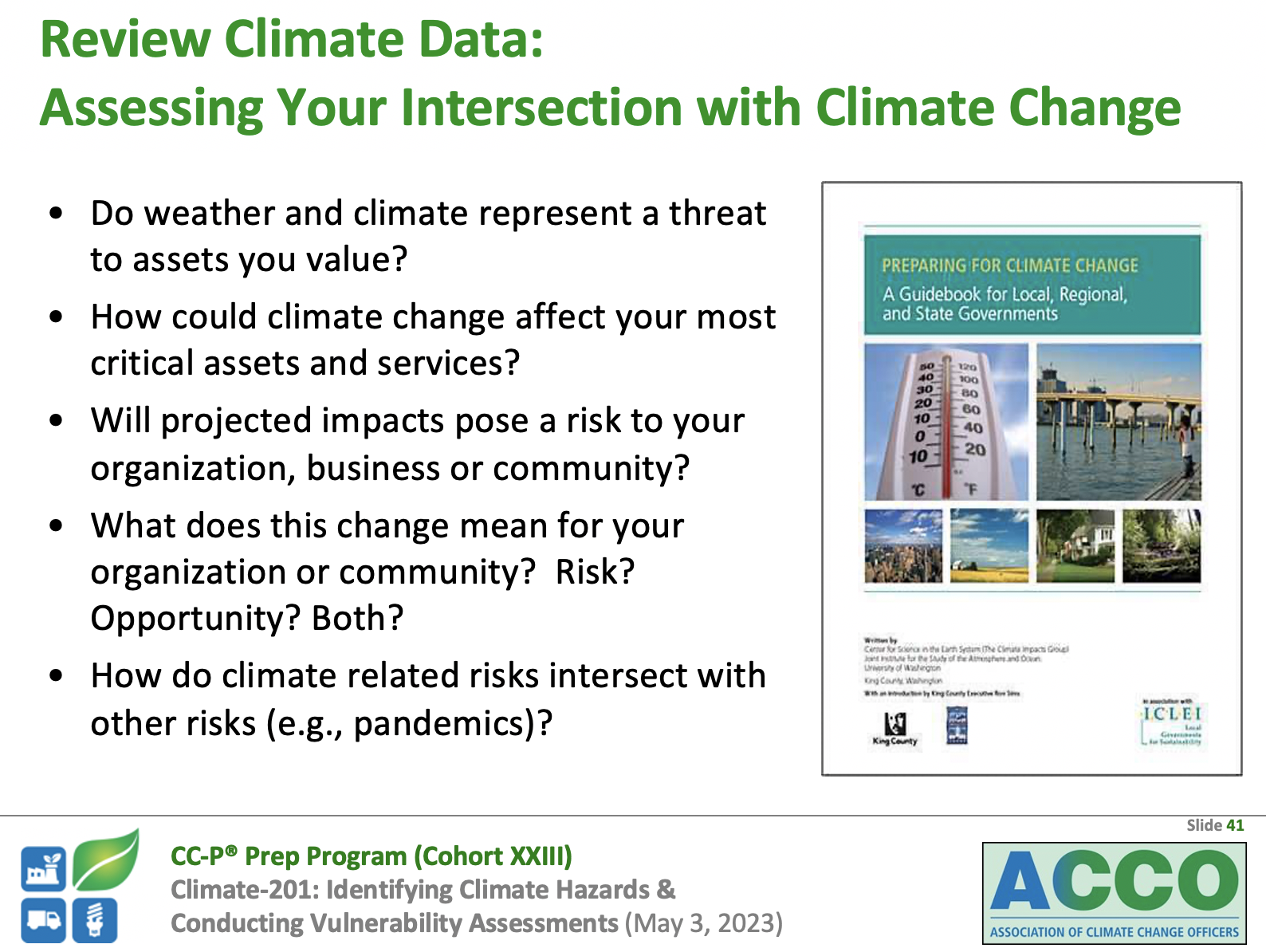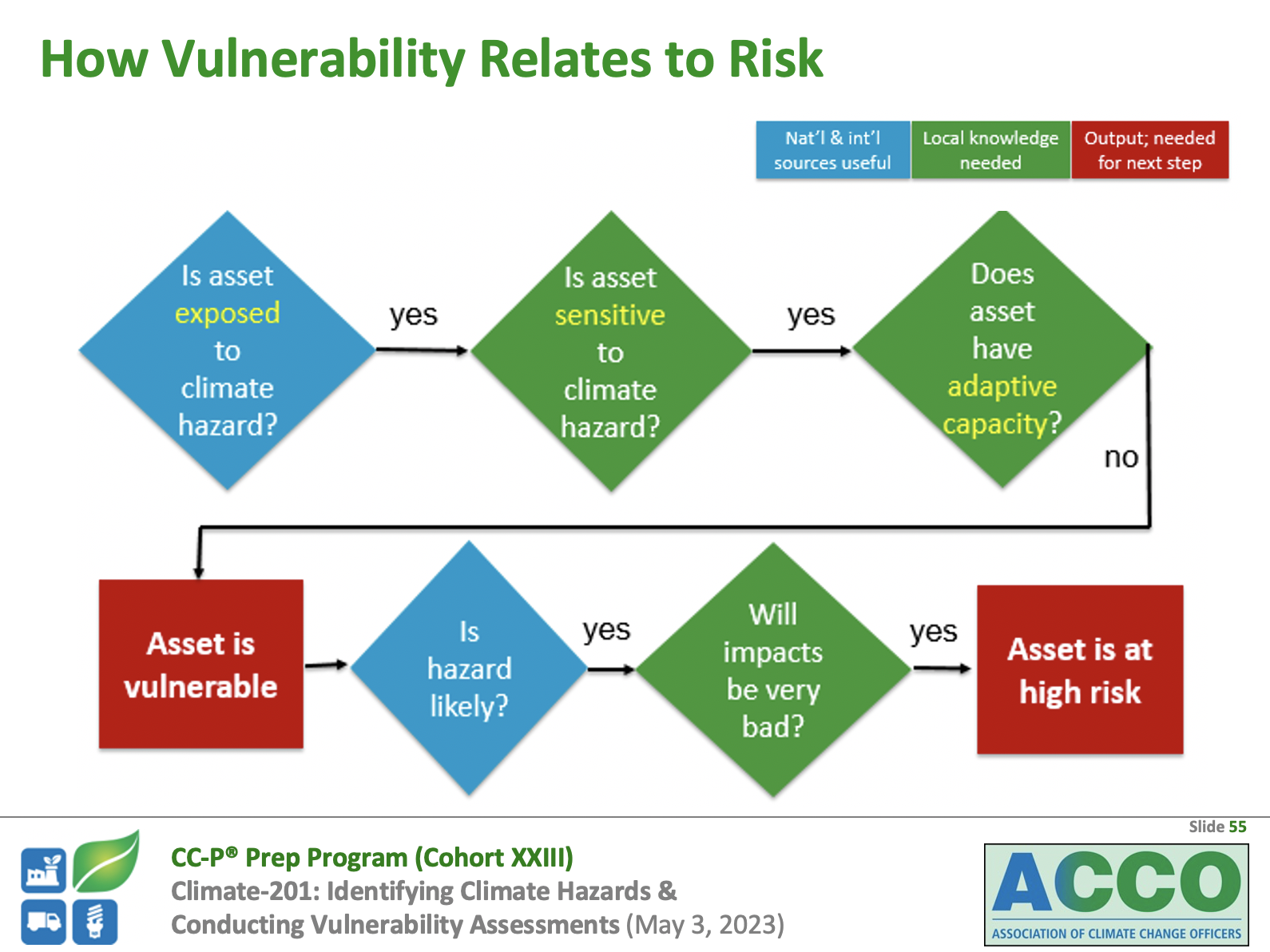Climate-201: Identifying Climate Hazards & Conducting Vulnerability Assessments
Recommended Exam Prep Course (Climate Science & Vulnerability Assessment)
Estimated Time: 2 hours 17 minutes
Scroll down and to the right to perform a free self-assessment on the Climate-201 module.
Course participants will receive an introduction to available community-relevant information sources and tools, climate data sets, and a template to help assess an organization's (or region's) climate risks and current resilience. Attendees will learn how to define climate-related hazards, recognize differential impacts of those hazards, identify existing and future risks, fully understand their current vulnerabilities and strengths, identify and utilize stakeholder partnerships to inform the decision making process, and evaluate the most critical vulnerabilities for their organization.
Learning Objectives
Clarifying relevant terminology
Understanding the importance of doing cross-sector, cross-discipline and whole community analysis
Understanding the basics of risk analysis framework and risk management approaches (i.e. defining criticality, prioritizing vulnerabilities), and incorporating climate change into risk analysis activities, strategies and portfolios
Learning how historical data on climate hazards and community indicators are accessed and used (including socioeconomic and health data)
Evaluating gaps in data and vulnerability knowledge
Learning about vulnerability assessments and natural catastrophe modeling, and the resources necessary to undertake vulnerability assessment work
Grasping timeframes and frequency of different climate hazards, aligning these with decision making processes, and effectively communicating about these issues
Course Architects
Alison Adams – Chief Technical Officer, Science and Technology Division, Tampa Bay Water
Kathleen Ave – Renewable Energy & Climate Project Manager, Sacramento Municipal Utility District
Christine Baglin – Principal, Project Performance Corporation
Dan Basoli – Associate, Environment & Natural Resources Division, Abt Associates
Keely Brooks – Climate Change Analyst, Southern Nevada Water Authority
Kelly Burks-Copes – Ecologist, U.S. Army Engineer Research and Development Center, U.S. Army Corps of Engineers
Alan Cohn – Director of Climate and Water Quality, New York City Department of Environmental Protection
Nancy Gassman – Assistant Public Works Director, Sustainability Division, City of Fort Lauderdale
Juliette Hayes – Acting Hazard Mitigation Assistance Branch Chief, FEMA Region IX
Mark Sutherland – Former Senior Analyst, Marstel-Day
Susanne Torriente – Chief Resiliency Manager, City of Miami Beach
Click on the image above for a sample clip from the online training. To purchase on-demand access to this training course, click on the 'add to cart' button below.
Course Reviewers (2021-2023)
Alicia Betancourt, CC-P -- University of Florida Extension Director, Monroe County, University of Florida
Sarel Cousins, CC-P -- Administrator (Planner), Maryland Department of Agriculture
Ned Gardiner -- Climate Resilience Toolkit Engagement Manager, NOAA
Fred Lipschultz -- Senior Scientist, US Global Change Research Program
Adrienne Hollis — Senior Climate Justice and Health Scientist, Union of Concerned Scientists
Susan Love -- Administrator, Climate and Sustainability Office, Delaware Department of Natural Resources and Environmental Control
Lindene Patton -- Partner, Earth and Water Law, LLC
Paul Wagner -- Faculty and Fellow, Virginia Tech Center for Leadership in Global Sustainability
